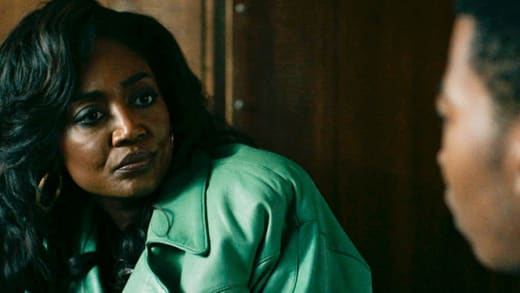
A loving family with a hardworking father build a wonderful home next to his place of work for convenience and security in The Zone of Interest, an unsettling and unique drama set against the backdrop of the screams and furnaces of Auschwitz.
The Oscar contender focuses squarely on the ability to look away and compartmentalize the atrocities occurring literally a stone’s throw away, an attempt to explain, while still criticize with prejudice, how otherwise normal people could allow such things to occur.
The family here is no ordinary family, of course. The husband/father (Christian Friedel) is the commandant of the Nazi camp, while his wife (Sandra Hüller) maintains the home and garden blissfully negligent (note I don’t use the term unaware) to the murders occurring on a minute-by-minute basis. The movie is based on real people.
The Zone of Interest, directed and co-written by Jonathan Glazer (Birth, Under the Skin, Sexy Beast), is well made with striking visuals and strong performances, most notably from Hüller (she’s also the star of this year’s Anatomy of a Fall). The film possesses a nonhumorous satirical demeanor, its matter-of-fact portrayal of this seemingly sociopathic family intended to leave your jaw on the floor.
But as removed as the individuals here are, so is The Zone of Interest as a movie. It operates on a single, simple conceit, that of this seemingly normal life juxtaposed with next-door genocide. The story otherwise only exists to demonstrate this contrast; it isn’t particularly compelling on its own. That’s the point, though. These people are seemingly mundane, and they do mundane things. But it’s fucked up because they’re wearing the clothes of murdered people, playing with the teeth of murdered people, and literally go to sleep to the hum of gas chambers.
Whether it fully works, I’m not sure. The Zone of Interest is a technical achievement. Glazer’s work here is top notch; it’s a masterclass in filmmaking. He’s literally made a horror movie where the horror exists almost entirely off screen; you sense what’s happening, but aside from the growl of machines or occasional screams, nothing bad is written into the story. Yet for all its technical merit, and all the precision at play, the movie didn’t leave me in awe the way I was expecting. The components are all there, and while Glazier deserves utmost respect for providing a unique angle on the Holocaust, it doesn’t necessarily say anything new about the Holocaust.
When Glazer does what he does in the end, it of course has emotional weight because it’s very hard not to get emotional about the Holocaust. After countless movies about the atrocities of the Holocaust, I’d argue that isn’t enough.
Review by Erik Samdahl unless otherwise indicated.


























































![Mason Ramsey – Twang [Official Music Video] Mason Ramsey – Twang [Official Music Video]](https://i.ytimg.com/vi/xwe8F_AhLY0/maxresdefault.jpg)

















